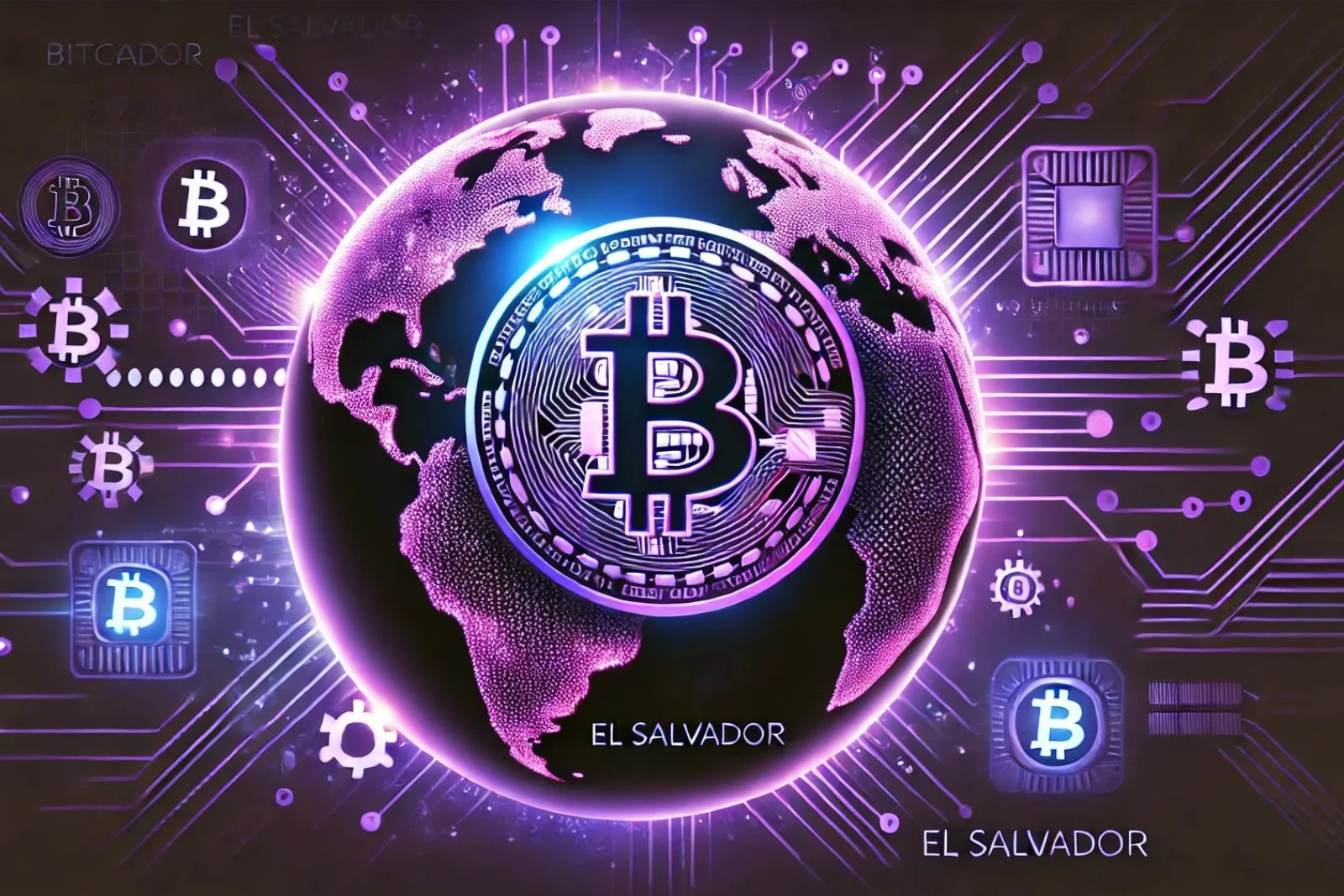The crypto industry is rapidly evolving, with regulatory requirements following suit. These are the trends in compliance that will shape the industry in 2024. Stablecoin issuers will face stricter regulations while businesses will have to navigate a patchwork of global requirements.
Continue readingCrypto in UAE: Why Businesses Should Expand to Dubai & Abu Dhabi
Crypto in UAE: Why Businesses Should Expand to Dubai & Abu Dhabi
2024 has been a groundbreaking year for the United Arab Emirates (UAE) in cryptocurrency and blockchain innovation. The country introduced sweeping changes to its tax policies, including a Value Added Tax (VAT) exemption for cryptocurrency transactions on centralized exchanges. With a robust regulatory framework, supportive government policies, and cutting-edge infrastructure, the UAE is positioning itself as one of the most attractive destinations for crypto enterprises globally.
From tax relief to stablecoin regulations, the UAE’s forward-thinking approach is attracting major players like Binance, Ripple, and Circle, solidifying its reputation as a global hub for digital assets. If you’re considering expanding into the Middle East, the UAE offers unparalleled opportunities for growth, innovation, and compliance within a rapidly evolving ecosystem.
Table of Contents
The UAE’s Regulatory Landscape
The UAE, a federation of seven emirates, boasts a decentralized regulatory system. Each emirate—particularly Abu Dhabi and Dubai—exercises autonomy in crafting cryptocurrency policies, making the regulatory environment both diverse and complex. Abu Dhabi and Dubai together contribute 80% of the nation’s GDP, giving them significant influence over the UAE’s overall crypto framework.
At the federal level, the UAE’s regulatory system is shaped by three main authorities and two specialized entities:
- Central Bank of the UAE (CBUAE): Oversees crypto payment regulation.
- Securities and Commodities Authority (SCA): Regulates cryptocurrency investments.
- Dubai Virtual Assets Regulatory Authority (VARA): The world’s first dedicated virtual assets regulator.
- Abu Dhabi Global Market (ADGM): Operates its own independent crypto framework.
- Dubai International Financial Centre (DIFC): Develops separate regulations under its jurisdiction.
UAE’s Key Regulatory Developments in Recent Years
The UAE introduced groundbreaking regulatory changes to solidify its position as a global hub for blockchain and cryptocurrency innovation.
Some Major Crypto Players Entering the UAE
Why UAE is the Centerpiece of UAE’s Crypto Boom
Conclusion: The UAE’s Crypto Future
The UAE is not only embracing the crypto revolution but actively shaping its global trajectory. Its blend of progressive regulations, tax incentives, and cutting-edge infrastructure makes it a prime destination for blockchain and cryptocurrency businesses.
With key players like Binance and Ripple already establishing operations, the UAE’s influence in the crypto world is undeniable. For businesses looking to expand into this thriving market, the UAE offers unparalleled opportunities to innovate and grow within a forward-thinking ecosystem.
Establish Your Crypto Business in the UAE with CryptoLicence
The UAE’s dynamic and complex regulatory landscape presents immense opportunities for crypto businesses ready to expand. However, navigating these regulations requires expertise, strategy, and local knowledge.
Ready to establish your crypto presence in the UAE? CryptoLicence simplifies the complexities of the UAE’s regulatory environment, allowing you to focus on growing your business. Whether you’re looking to secure licenses, expand operations, or tap into the region’s booming crypto ecosystem, we’re here to guide you every step of the way. Contact us today!
Crypto Valley: How Zug in Switzerland Became Global Blockchain & Crypto Hub
Crypto Valley: How Zug in Switzerland Became Global Blockchain & Crypto Hub
Zug, Switzerland, is renowned for its blockchain-friendly regulatory environment, earning it the title “Crypto Valley.” As one of Europe’s fastest-growing tech hubs, Zug has become a magnet for startups and multinational corporations alike, thanks to its low-tax policies, robust financial system, and innovative legal framework. Crypto Valley’s success not only solidifies Switzerland’s leadership in blockchain but also serves as a model for other nations, making it a must-visit destination for cryptocurrency enterprises.
Table of Contents
The Origins of Crypto Valley: From Concept to Global Blockchain Hub
The concept of Crypto Valley was first introduced in 2013 by entrepreneur Johann Gevers, who relocated his company Monetas to Zug. Drawing inspiration from Silicon Valley, Gevers envisioned creating a global hub for crypto innovation. Switzerland’s decentralized political system, business-friendly policies, and high quality of life made it an ideal location. The founding of Ethereum in Zug in 2014 further cemented the city’s reputation as a blockchain leader.
Today, Crypto Valley has expanded beyond Zug to include other Swiss cities like Zurich, Lugano, and Geneva. The region hosts over 1,100 blockchain and cryptocurrency companies, including nine unicorns, such as Ethereum, Cardano, Polkadot, Nexo, and Solana. These firms are driving blockchain innovation and earning Switzerland the nickname “Crypto Nation.”
Key Factors Supporting Crypto Valley's Growth
- Government Support: Zug’s government adopts business-friendly policies, offering low taxes and a regulatory framework favorable to cryptocurrencies. Since 2013, it has supported initiatives like the Ethereum Foundation, attracting numerous startups and multinational companies to the area.
- Robust Legal and Financial Systems: Switzerland boasts world-class legal frameworks and financial systems. In 2018, Swiss Economic Minister Johann Schneider-Ammann announced plans to make Switzerland the “Blockchain Capital of the World.” Policies like the Blockchain Act and Fintech License have since been introduced, enhancing legal clarity and attracting DeFi projects and blockchain applications.
- World-Class Talent and Education: Switzerland’s strong education system and culture of innovation provide a steady pipeline of talent for the Crypto Valley.
- High Quality of Life: Switzerland’s safety, healthcare, and living standards make it a prime destination for global talent and enterprises. This high quality of life ensures a stable foundation for Crypto Valley’s sustained growth.
Blockchain Technology in Everyday Life in Zug
Zug is not only home to blockchain companies but also actively incorporates the technology into municipal services and daily life, promoting widespread adoption:
Crypto Valley’s Ecosystem and Global Impact
Future Outlook: Sustaining Crypto Valley's Growth
Establish Your Swiss Crypto Presence with CryptoLicence
Switzerland’s strict financial regulations and thriving blockchain ecosystem make it an ideal base for crypto businesses. CryptoLicence specializes in helping enterprises secure Swiss cryptocurrency licenses and Self-Regulatory Organization (SRO) memberships, ensuring compliance and enhancing global credibility.
- Expert Compliance Team: We manage Swiss regulatory and SRO requirements, streamlining the application process for maximum approval success.
- Strategic Guidance: We help you select the best and tailored compliance strategy.
- Comprehensive Support: From legal consultation to AML/KYC policy creation, we handle it all, saving you time and effort.
Switzerland’s robust regulatory environment builds trust, and CryptoLicence offers simplified solutions to establish your crypto presence.
Contact us today to begin your Swiss crypto journey!
What is MiCA, and How Will It Shape the Future of Crypto?
What is MiCA, and How Will It Shape the Future of Crypto?
On 20 April, 2023, the European Union introduced the Markets in Crypto-Assets Regulation (MiCA), marking a significant milestone in global cryptocurrency regulation. Designed to protect consumers, ensure market stability, and encourage innovation, MiCA provides a comprehensive framework for the crypto-asset market. With its phased rollout beginning in mid-2023 and continuing into 2024, MiCA is set to position the EU as a leader in cryptocurrency governance.
But what exactly is MiCA, and how will it impact the crypto industry? More importantly, how should crypto businesses prepare to navigate this new regulatory landscape?
Table of Contents
Understanding MiCA: A Comprehensive Regulatory Framework
MiCA is the first legislative framework of its kind globally, aimed at standardizing the regulation of cryptocurrencies and related services across the EU. Developed to address potential risks while promoting market growth, MiCA introduces clear guidelines for crypto market participants, including issuers, exchanges, and custodians.
This landmark regulation promises to bring clarity to a market often criticized for its opacity and lack of safeguards.
Key Components of MiCA
- Licensing Requirements: MiCA requires issuers of crypto-assets and service providers, such as exchanges and wallet operators, to obtain licenses to operate within the EU. By streamlining the process for initial coin offerings (ICOs) and security token offerings (STOs), MiCA ensures transparency and compliance with disclosure requirements.
- Regulation of Stablecoins: MiCA introduces stringent rules for asset-referenced tokens (ARTs) and electronic money tokens (EMTs), often referred to as stablecoins. These tokens, pegged to fiat currencies or physical assets, are subject to robust governance, capital reserves, and authorization processes. These measures aim to mitigate risks to financial stability.
- Anti-Money Laundering (AML) and Counter-Terrorism Financing (CTF): The regulation strengthens AML and CTF measures for crypto-asset service providers. By aligning with the EU’s existing directives, MiCA mandates stringent Know Your Customer (KYC) procedures and risk assessment protocols to combat illicit activity in the crypto space.
- Consumer Protection: MiCA establishes strong consumer protection measures, including mandatory pre-contract disclosures, targeted advertising rules, and transparency obligations. These measures aim to safeguard investors and reduce the prevalence of fraud in the crypto market.
- Supervision and Enforcement: MiCA creates a robust oversight mechanism, with national authorities monitoring service providers and the European Securities and Markets Authority (ESMA) overseeing cross-border operations and stablecoin issuance. This dual-layered approach ensures consistent enforcement across the EU.
Benefits of MiCA for the Crypto Industry
MiCA’s implementation brings numerous advantages to the European crypto market and its participants:
- Consumer Confidence: By establishing clear rules and strong consumer protections, MiCA builds trust in the crypto industry, encouraging more widespread participation.
- Market Integrity: The regulation fosters transparency and accountability among market participants, ensuring a fair and competitive environment.
- Institutional Investment: MiCA’s legal clarity makes it more appealing for institutional investors to enter the crypto market, injecting significant capital and fostering growth.
- Legitimacy and Innovation: With standardized regulations, the crypto industry gains greater legitimacy, paving the way for broader adoption and government support while promoting innovation within a clear framework.
MiCA’s Challenges on Stablecoins: The Case of Tether (USDT)
As the EU prepares to implement its MiCA in December 2024, cryptocurrency exchanges across Europe are making significant adjustments, including the delisting of Tether (USDT), the world’s largest stablecoin. While Tether is working on MiCA-compliant alternatives, the move raises critical concerns about liquidity and stability in the region.
The Impact of MiCA on Crypto Businesses
While the transition aims to align with MiCA’s goals of stability and consumer protection, it underscores the challenges of navigating a rapidly evolving regulatory landscape.
Preparing for MiCA: Strategies for Crypto Businesses
Navigate MiCA Compliance with CryptoLicence
Adapting to MiCA’s regulations doesn’t have to be overwhelming. CryptoLicence is your trusted partner for securing cryptocurrency and financial licenses across Europe. With a proven track record, we simplify complex compliance, allowing you to focus on growing your business.
Our expert team provides tailored solutions, guiding you through licensing requirements like the Polish VASP or MiCA compliance. Whether expanding locally or globally, we offer end-to-end support to help your business thrive.
Let us handle the regulatory challenges while you drive innovation.
Contact CryptoLicence today and unlock new opportunities for your crypto business.
El Salvador’s Bitcoin Experiment: Success and Crypto’s Future
El Salvador’s Bitcoin Experiment: Success and Crypto’s Future
In September 2021, El Salvador became the first country to adopt Bitcoin as legal tender. This ambitious decision was part of President Nayib Bukele’s vision to modernize the nation’s economy, reduce dependence on the U.S. dollar, and embrace emerging technologies. While the move has drawn both praise and criticism globally, it represents a pivotal moment in the intersection of technology and governance.
Now, with Bitcoin breaking new price records and the Salvadoran government continuing to invest heavily in the cryptocurrency, the question remains: Can Bitcoin power El Salvador’s economic future? Where is the future of the country’s cryptocurrency industry headed?
Table of Contents
El Salvador’s Road to Bitcoin: A Brief History
El Salvador, a Central American country with a population of 6.8 million, has long grappled with economic challenges. Traditionally an agricultural economy producing coffee, cotton, and sugar, the nation transitioned to the U.S. dollar as its official currency in 2001. This dollarization was intended to stabilize the economy but left El Salvador vulnerable to U.S. monetary policy, limiting its ability to address domestic financial issues such as high remittance costs and low financial inclusion.
To tackle these persistent problems, President Bukele proposed adopting Bitcoin, presenting it as a tool to foster innovation, increase financial independence, and attract international investment. On 5 June, 2021, Bukele announced plans to make Bitcoin legal tender, and just three months later, the Bitcoin Law came into effect, mandating that businesses accept Bitcoin as a form of payment alongside the U.S. dollar. The move positioned El Salvador as a trailblazer in cryptocurrency adoption but also brought a wave of controversy.
Bukele’s Policies to Accelerate Bitcoin Adoption
Bukele’s administration has implemented several measures to encourage Bitcoin adoption across various sectors of the economy. These include government investments, legislative support, and innovative projects that integrate Bitcoin into the nation’s infrastructure.
Crypto Businesses Moving to El Salvador
El Salvador’s Bitcoin-forward policies have attracted numerous cryptocurrency companies and startups to establish operations in the country, further solidifying its reputation as a hub for crypto innovation. Some key examples include:
- Bitfinex: In 2023, Bitfinex get the Digital Asset Service Provider (DASP) licence in El Salvador.
- Binance: In 2023, Binance obtained full licensing as both a Bitcoin Service Provider (BSP) and a Digital Asset Services Provider (DASP), allowing it to offer comprehensive crypto services in El Salvador.
- Bitso: Expanding into El Salvador in 2021, Mexican-based Bitso played a critical role in supporting the Chivo wallet, facilitating cross-border transactions and domestic payments.
- Bitget: Securing a BSP license in 2024, Bitget now offers a suite of Bitcoin-related services, including exchange platforms and custody solutions. The company is also investing in local infrastructure to expand its operations.
The Future and Broader Implications of El Salvador’s Experiment
El Salvador’s Bitcoin adoption has sparked a global conversation about the role of cryptocurrency in modern economies. While the nation’s bold move is unique, it raises important questions about the future of money, technology, and governance.
What Lies Ahead for El Salvador’s Crypto Future?
El Salvador’s experiment with Bitcoin is far from over. While the nation has made progress in building a crypto-friendly ecosystem, significant challenges remain. Public skepticism, infrastructure deficiencies, and global financial pressures all need to be addressed for the initiative to succeed.
Despite these hurdles, the potential upside is transformative. By embracing cryptocurrency and renewable energy, El Salvador is positioning itself at the forefront of a global movement toward digital innovation and sustainability. If the country can address its challenges effectively, it could become a model for how small nations can leverage technology to achieve economic independence and attract global investment.
The coming years will be critical for El Salvador as it seeks to refine its policies, expand infrastructure, and win public trust. Whether it becomes a blueprint for other nations or a cautionary tale, El Salvador’s bold experiment is shaping the narrative of what the future of money might look like in a rapidly evolving world.
Ready to enter the crypto market in El Salvador? CryptoLicence has you covered!
Compliance is the cornerstone of success in the cryptocurrency industry. CryptoLicence specializes in helping businesses secure global crypto licenses, including the crypto licences in El Salvador, Switzerland, and under the EU’s MiCA framework. We simplify complex regulatory processes, allowing you to focus on scaling your business.⠀
Contact us today and let CryptoLicence take your business to the next level!




